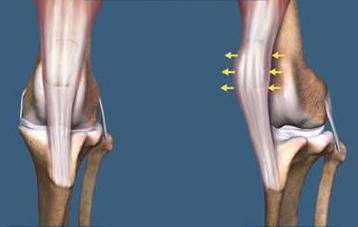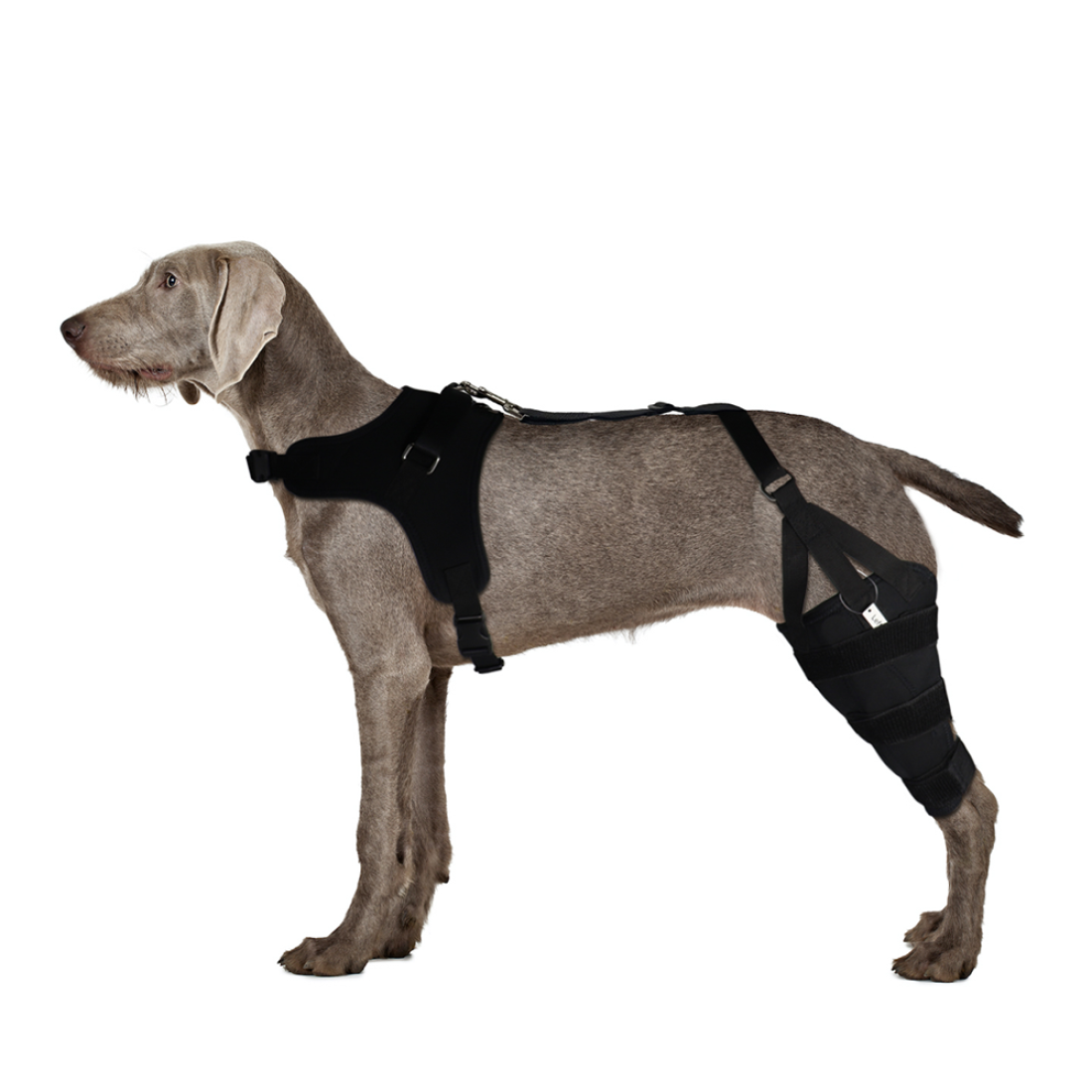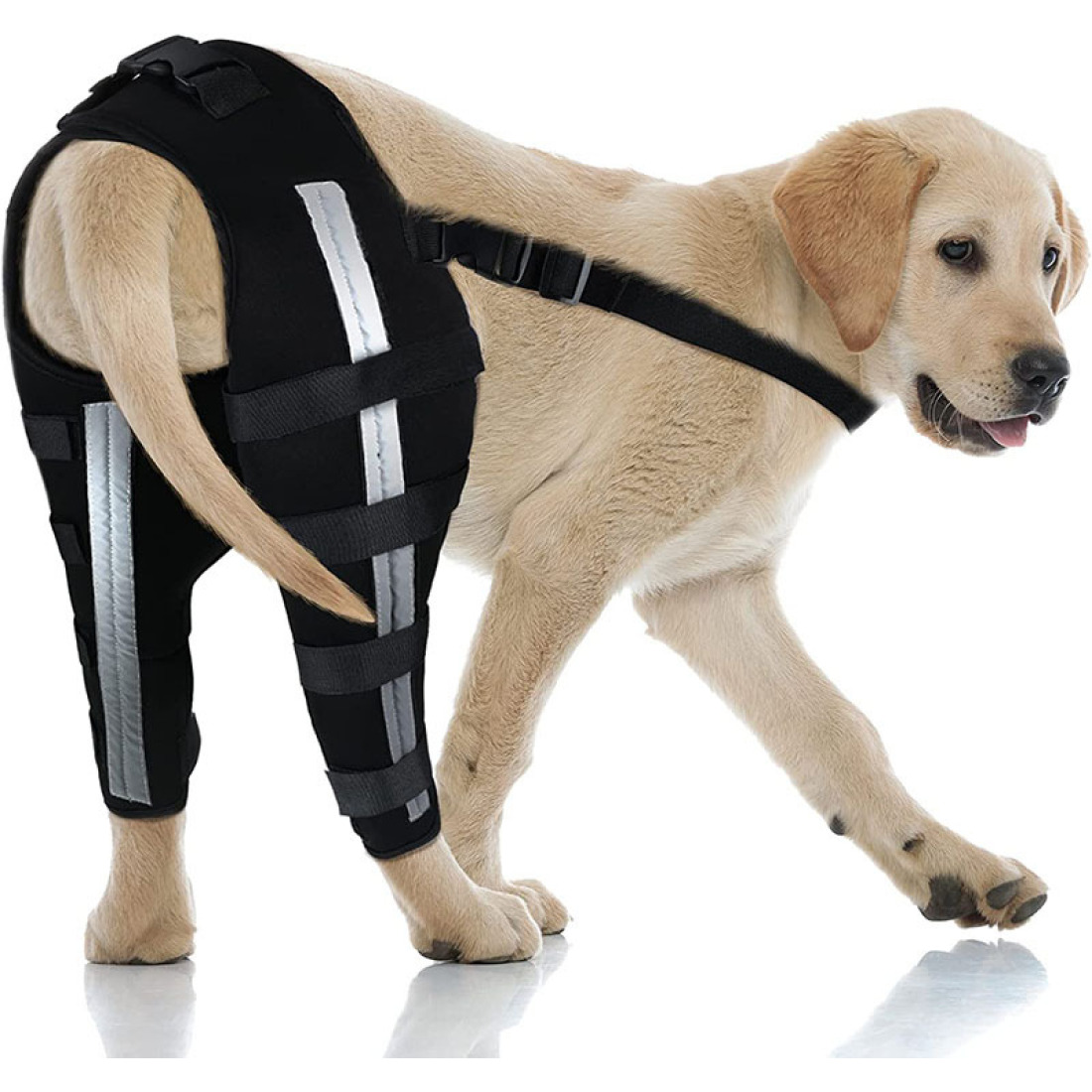A luxating patella in dogs is a common condition in which the kneecap (patella) shifts sideways, or luxates, away from the normal position at the front of the knee. You may also refer to it as a dislocated kneecap.
About 75% of the time, a luxating patella in dogs tends to occur inward, or toward the other hind limb. This version of a luxating patella is called medial patellar luxation (MPL) and is more common in smaller dogs.

Treatment for a Luxating Patella in Dogs
As with many orthopedic conditions in dogs, treatment options for a luxating patella can be divided into medical and surgical.
Medical Treatment
Medical treatment of a luxating patella in dogs often involves anti-inflammatory medications, weight loss, and temporary exercise restriction.
The amount of exercise allowed depends on the severity of your dog's health. It could be as simple as not allowing your dog to run up the stairs or jump on furniture, and just taking leash walks long enough for your dog to go to the potty.
If your dog needs to be confined to their crate, the duration can vary based on the severity of your dog’s condition. Crate rest usually lasts at least 6 weeks, and sometimes more than 12.
Surgical Treatment
Surgery for a luxating patella in dogs is significantly more involved. Pet parents may pursue surgery in severe cases, or in cases where medical treatment has failed. As with any surgery, it comes with risks and the potential for complications.
The most prevalent postoperative issue in MPL surgery is the recurrence of the luxating patella. Recurrence rates can reach 36% in the most severe cases, but are frequently less than 10% in milder types.
Implant failure, under-/overcorrection, avulsions (separations or detachments), fractures, infections, seromas (fluid-filled pockets), and progressive arthritis are other potential complications. Large-breed dogs and obese dogs are at higher risk for these issues. Interestingly, older dogs have fewer complications.
Best Dog knee brace for luxating patella can be an aid option for luxating patella dogs.




0 Comments